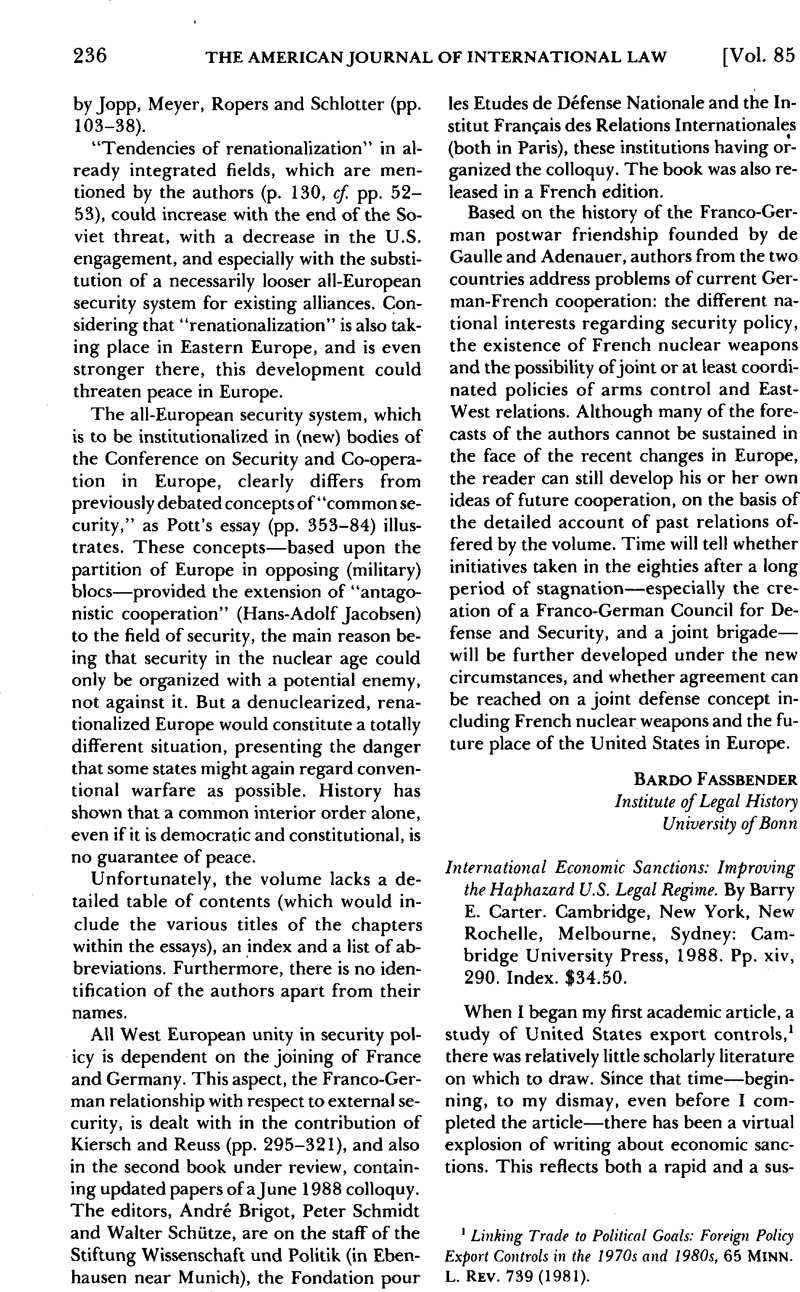No CrossRef data available.
Article contents
International Economic Sanctions: Improving the Haphazard U.S. Legal Regime. By Barry E. Carter. Cambridge, New York, New Rochelle, Melbourne, Sydney: Cambridge University Press, 1988. Pp. xiv, 290. Index. $34.50.
Published online by Cambridge University Press: 27 February 2017
Abstract

- Type
- Book Reviews and Notes
- Information
- Copyright
- Copyright © American Society of International Law 1991
References
1 Linking Trade to Political Goals: Foreign Policy Export Controls in the 1970s and 1980s, 65 Minn. L. Rev. 739 (1981).
2 G. Hufbauer & J. Schott, Economic Sanctions Reconsidered: History and Current Policy (1985).
3 For a discussion of Baldwin’s understanding of sanctions as compared to that of Hufbauer and Schott, see Abbott, Coercion and Communication: Frameworks for Evaluation of Economic Sanctions, 19 N.Y.U.J. Int’l L. & Pol. 781 (1987).
4 Carter does treat the issue of international lawfulness briefly in a footnote (p. 5 n.6).
5 For a discussion of the many ways in which the balance has been so tipped, see H. Koh, The National Security Constitution (1990).
6 Carter observes that government programs constitute “arguably the activity the President … should most control” (pp. 236–37). After the book’s lengthy description of government programs, however, their sudden dismissal comes as a considerable letdown, and the rationale is not convincingly argued. The case for leaving untouched the legislation on IFIs is clearer: the United States cannot control their decisions whatever its laws provide, and it would in any case be unwise to politicize the IFIs at a time of high Third World debt and financial instability. The latter point, of course, could also be made about international trade and the flow of private capital.
7 Extraterritorial export controls would also be discouraged by requiring unspecified prior presidential findings and permitting administrative challenges, apparently based on international law. Such challenges would raise complex issues, and an independent court might be a better forum for deciding them.
8 The new statute might also require that any control on the import of particular products be linked to other sanctions, so that import control authority would not be subverted for protectionist ends. The import statute would also “encourage” compliance with GATT.
9 See Fukuyama, The End of History?, Nat’l Interest, Summer 1989, at 3.


